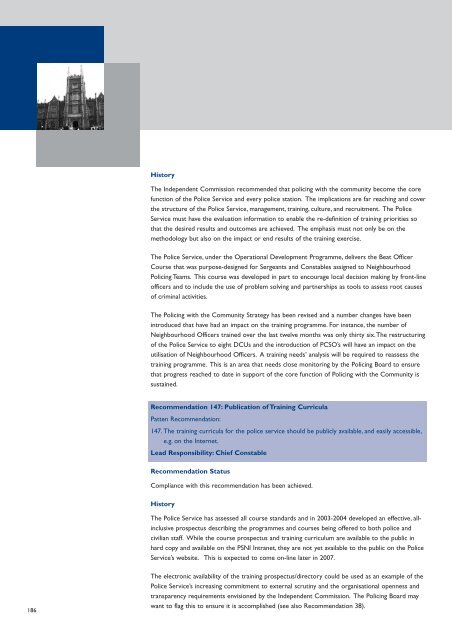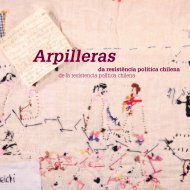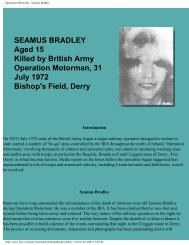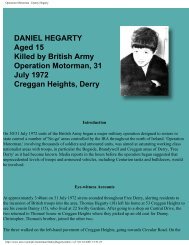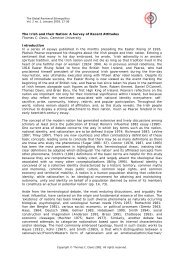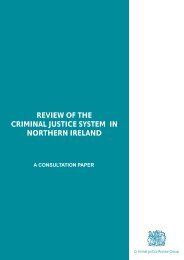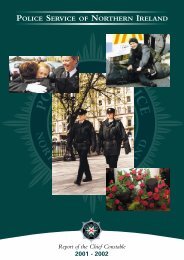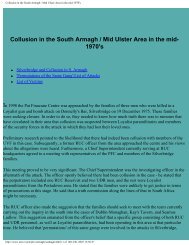11293 report 19 - CAIN - University of Ulster
11293 report 19 - CAIN - University of Ulster
11293 report 19 - CAIN - University of Ulster
You also want an ePaper? Increase the reach of your titles
YUMPU automatically turns print PDFs into web optimized ePapers that Google loves.
HistoryThe Independent Commission recommended that policing with the community become the corefunction <strong>of</strong> the Police Service and every police station. The implications are far reaching and coverthe structure <strong>of</strong> the Police Service, management, training, culture, and recruitment. The PoliceService must have the evaluation information to enable the re-definition <strong>of</strong> training priorities sothat the desired results and outcomes are achieved. The emphasis must not only be on themethodology but also on the impact or end results <strong>of</strong> the training exercise.The Police Service, under the Operational Development Programme, delivers the Beat OfficerCourse that was purpose-designed for Sergeants and Constables assigned to NeighbourhoodPolicing Teams. This course was developed in part to encourage local decision making by front-line<strong>of</strong>ficers and to include the use <strong>of</strong> problem solving and partnerships as tools to assess root causes<strong>of</strong> criminal activities.The Policing with the Community Strategy has been revised and a number changes have beenintroduced that have had an impact on the training programme. For instance, the number <strong>of</strong>Neighbourhood Officers trained over the last twelve months was only thirty six.The restructuring<strong>of</strong> the Police Service to eight DCUs and the introduction <strong>of</strong> PCSO’s will have an impact on theutilisation <strong>of</strong> Neighbourhood Officers. A training needs’ analysis will be required to reassess thetraining programme. This is an area that needs close monitoring by the Policing Board to ensurethat progress reached to date in support <strong>of</strong> the core function <strong>of</strong> Policing with the Community issustained.Recommendation 147: Publication <strong>of</strong> Training CurriculaPatten Recommendation:147. The training curricula for the police service should be publicly available, and easily accessible,e.g. on the Internet.Lead Responsibility: Chief ConstableRecommendation StatusCompliance with this recommendation has been achieved.HistoryThe Police Service has assessed all course standards and in 2003-2004 developed an effective, allinclusiveprospectus describing the programmes and courses being <strong>of</strong>fered to both police andcivilian staff. While the course prospectus and training curriculum are available to the public inhard copy and available on the PSNI Intranet, they are not yet available to the public on the PoliceService’s website. This is expected to come on-line later in 2007.186The electronic availability <strong>of</strong> the training prospectus/directory could be used as an example <strong>of</strong> thePolice Service’s increasing commitment to external scrutiny and the organisational openness andtransparency requirements envisioned by the Independent Commission. The Policing Board maywant to flag this to ensure it is accomplished (see also Recommendation 38).


